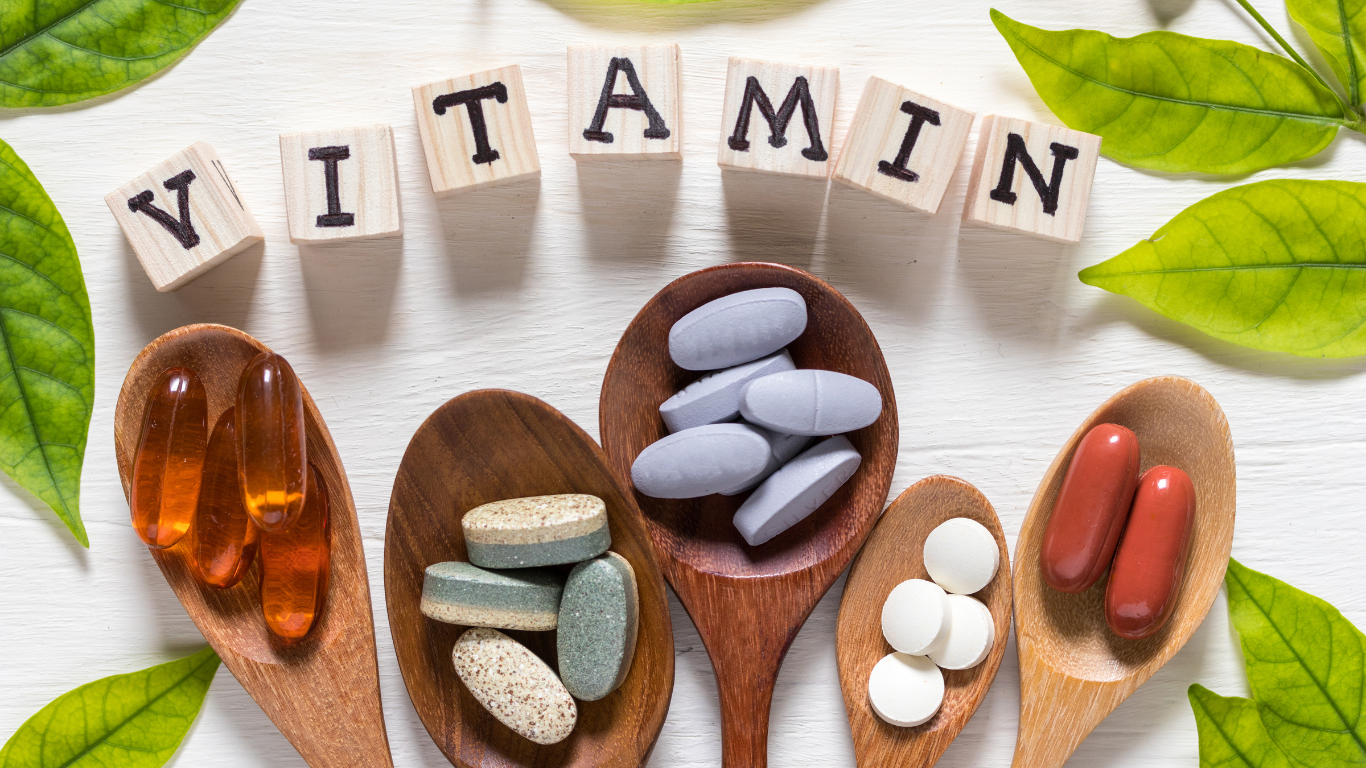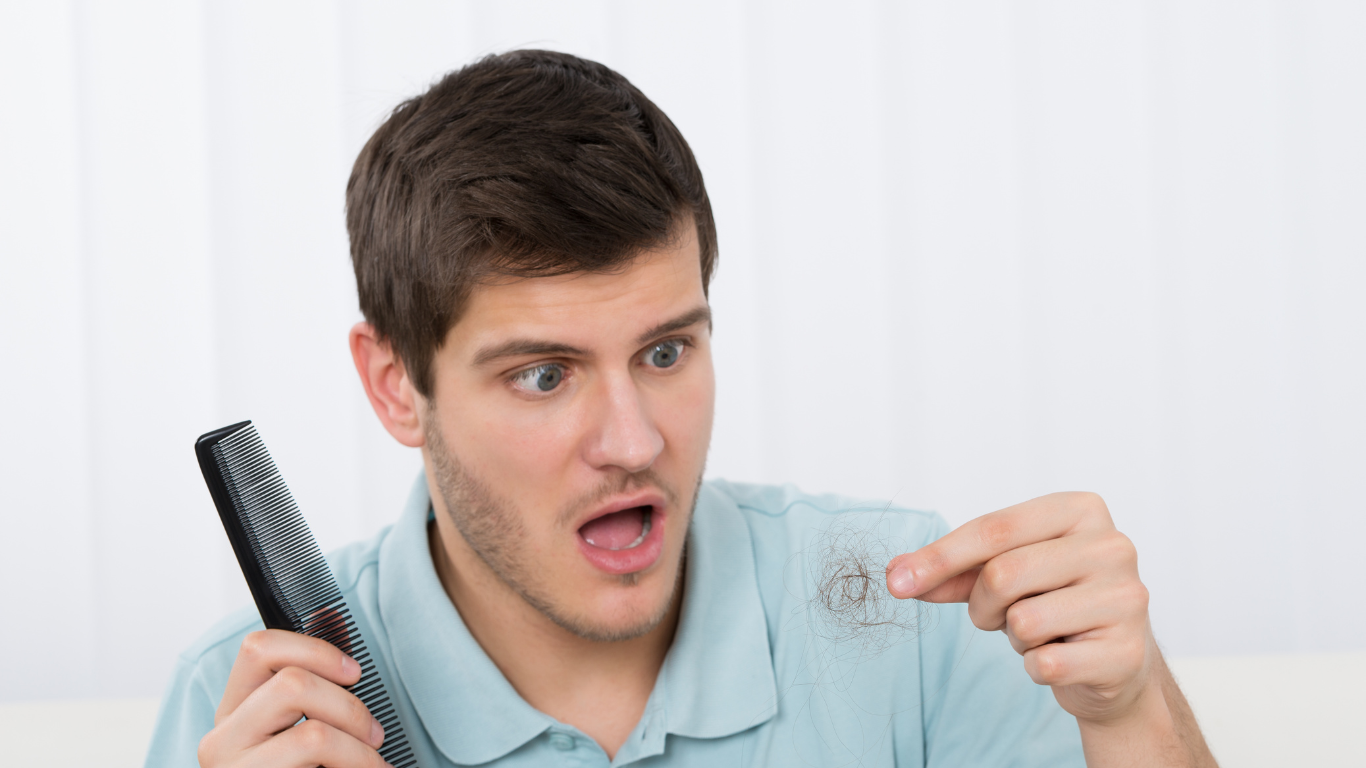 Author: Dr. Hamid Hosseini MD, MBioMed & PhD
Author: Dr. Hamid Hosseini MD, MBioMed & PhD
(CEO & Founder of Hamita Biotech who discovered the unique formula of Dr. Hamid Hair Regrowth Products. A Clinician, Researcher & Immunologist who specialised in hair physiology & aesthetic medicine; Melbourne, Australia).
Hair loss can significantly impact a person's quality of life, making an effective treatment plan essential. Many people wonder how they can prevent or manage hair loss, and in this context, the role of a balanced diet and vitamin and mineral supplementation often comes into focus.
The human scalp boasts around 100,000 hair follicles, roughly 90% in the active growth phase (anagen). These follicles require essential elements like proteins, vitamins, and minerals for healthy growth and maintenance. Skin and hair changes are notably pronounced in individuals with protein-energy malnutrition or deficiencies in vitamins and minerals. The hair follicle bulb, housing rapidly dividing matrix cells, relies on tiny particles like vitamins and minerals for its normal development, including cellular turnover. Consequently, a nutrient deficiency is a modifiable risk factor for hair loss (1,2,3).
Let's explore the role of various vitamins in average hair growth and maintenance:
Vitamin E
Vitamin A, a fat-based vitamin, plays multiple crucial roles in the body. It's vital for vision, immune function, and the average growth and differentiation of cells, including hair follicle growth. Vitamin A can be obtained from animal and plant sources in the diet, with the liver storing most of it. Typically, a well-balanced diet provides an adequate amount of vitamin A. The recommended dietary allowance for adults aged 19 and above is 1300 mcg/day (4300 IU) of vitamin A. However, excessive intake, surpassing approximately 10,000 IU a day, can lead to vitamin A toxicity (4,5,6).

The Vitamin B complex
The Vitamin B complex plays a pivotal role in cellular metabolism and consists of eight vitamins: Vitamin B1 (thiamine), Vitamin B2 (riboflavin), Vitamin B3 (niacin), Vitamin B5 (pantothenic acid), Vitamin B6 (pyridoxine), Vitamin B7 (biotin), Vitamin B9 (folate), and Vitamin B12 (Cobalamin). Research has linked Vitamin B1, B2, B7, B9, and B12 deficiencies to hair loss [4]. In general, a well-rounded diet provides sufficient quantities of these vitamins. Biotin, the only B vitamin our bodies produce, doesn't require supplementation in healthy individuals.
 Vitamin B1 (Thiamine)
Vitamin B1 (Thiamine)
 Vitamin B2 (Riboflavin)
Vitamin B2 (Riboflavin)
 Vitamin B7 (Biotin)
Vitamin B7 (Biotin)
 Vitamin B9 (Folate)
Vitamin B9 (Folate)
Vitamin B9 is another water-soluble B vitamin and includes naturally occurring food folate and folic acid. Folate is important in the synthesis of nucleic acids and in amino acid metabolism. About 50% of the body’s vitamin B9 exists in the liver. The recommended dietary intake of folate is 400 mcg daily for adults, with the maximum intake level of 1000 mcg. People with poor diet, alcoholism, or a malabsorptive disorder are at risk of folate deficiency which can cause hair, skin, and nail changes (4–6).
 Vitamin B12
Vitamin B12
Vitamin C (ascorbic acid)
Vitamin C is a water-based vitamin derived from glucose metabolism and acts as an antioxidant preventing the oxidation of LDL (bad cholesterol) and free radical damage. Vitamin C is essential for the absorption of iron in the intestinal. Therefore, vitamin C intake is important in patients with hair loss associated with iron deficiency.
Citrus fruits, potatoes, tomatoes, green peppers, and cabbages are enriched in high concentrations of vitamin C. Vitamin C deficiency is associated with body hair abnormalities, but not directly with hair loss (4,5).
Vitamin D
Vitamin D is a fat-based vitamin produced in our skin. Vitamin D in the skin is inactive and transformed to sub-activated form called cholecalciferol by UVB in the skin and then into an active form in the liver and kidneys. Vitamin D has an anti-inflammatory and immunoregulatory effect and maintains serum levels of calcium and phosphorus (5,9).
Vitamin D modulates the growth and differentiation of keratinocytes of hair follicles in the anagen stage. Patients with severe vitamin D deficiency have hair loss as well as total scalp and body alopecia.
Alopecia areata is a disease dependent on autoimmunity, genetic predisposition, and emotional and environmental stress. Vitamin D deficiency is a common issue in patients with alopecia areata. Therefore, the vitamin D level has to be measured in patients with alopecia areata and vitamin D supplements should be considered for patients with alopecia areata and vitamin D deficiency (4,5,9).
Vitamin E
Our immune cells are extremely sensitive to oxidative damage and produce some elements to protect themselves from free radicals. Antioxidant supplementation fundamentally reverses several age-associated immune deficiencies, leading to increased immune cells and their antibody production, and boosting the immune system. Vitamin E is involved in the oxidant/antioxidant balance and protects against free-radical damage (9,10).
In conclusion, a well-balanced, healthy diet containing vitamins and nutrients is necessary for healthy hair (11). People with thin, unhealthy hair or hair fall can benefit from tailor-made products that could provide hair follicles with vitamins and nutrients necessary for their hair and skin health. We are proud to announce that Dr Hamid Hair Regrowth products contain active nano and microelements that ensure effective delivery of the essential vitamins and nutrients to hair follicles. Dr Hamid Hair Regrowth products are suitable for hair regrowth, hair loss prevention, and healthy hair maintenance, and promote thicker, denser-looking hair for men and women.
References:
- Shrivastava SB. Diffuse hair loss in an adult female: approach to diagnosis and management. Indian J Dermatol Venereol Leprol. 2009;75(1):20–7; quiz 27–8.
- Buffoli B, Rinaldi F, Labanca M, Sorbellini E, Trink A, Guanziroli E, et al. The human hair: from anatomy to physiology. Int J Dermatol. 2014 Mar;53(3):331–41.
- Sims RT. The measurement of hair growth as an index of protein synthesis in malnutrition. Br J Nutr. 1968 May;22(2):229–36.
- Almohanna HM, Ahmed AA, Tsatalis JP, Tosti A. The Role of Vitamins and Minerals in Hair Loss: A Review. Dermatol Ther (Heidelb). 2019 Mar;9(1):51–70.
- Coerdt KM, Goggins CA, Khachemoune A. Vitamins A, B, C, and D: A Short Review for the Dermatologist. Altern Ther Health Med. 2021 Jul;27(4):41–9.
- Institute of Medicine (US) Panel on Micronutrients. Dietary Reference Intakes for Vitamin A, Vitamin K, Arsenic, Boron, Chromium, Copper, Iodine, Iron, Manganese, Molybdenum, Nickel, Silicon, Vanadium, and Zinc [Internet]. Washington (DC): National Academies Press (US); 2001 [cited 2023 Dec 15]. Available from: http://www.ncbi.nlm.nih.gov/books/NBK222310/
- Thompson JM, Mirza MA, Park MK, Qureshi AA, Cho E. The Role of Micronutrients in Alopecia Areata: A Review. Am J Clin Dermatol. 2017 Oct;18(5):663–79.
- Patel DP, Swink SM, Castelo-Soccio L. A Review of the Use of Biotin for Hair Loss. Skin Appendage Disord. 2017 Aug;3(3):166–9.
- Saini K, Mysore V. Role of vitamin D in hair loss: A short review. J Cosmet Dermatol. 2021 Nov;20(11):3407–14.
- Pincemail J, Meziane S. On the Potential Role of the Antioxidant Couple Vitamin E/Selenium Taken by the Oral Route in Skin and Hair Health. Antioxidants (Basel). 2022 Nov 17;11(11):2270.
- Finner AM. Nutrition and hair: deficiencies and supplements. Dermatol Clin. 2013 Jan;31(1):167–72.








Leave a comment
This site is protected by hCaptcha and the hCaptcha Privacy Policy and Terms of Service apply.